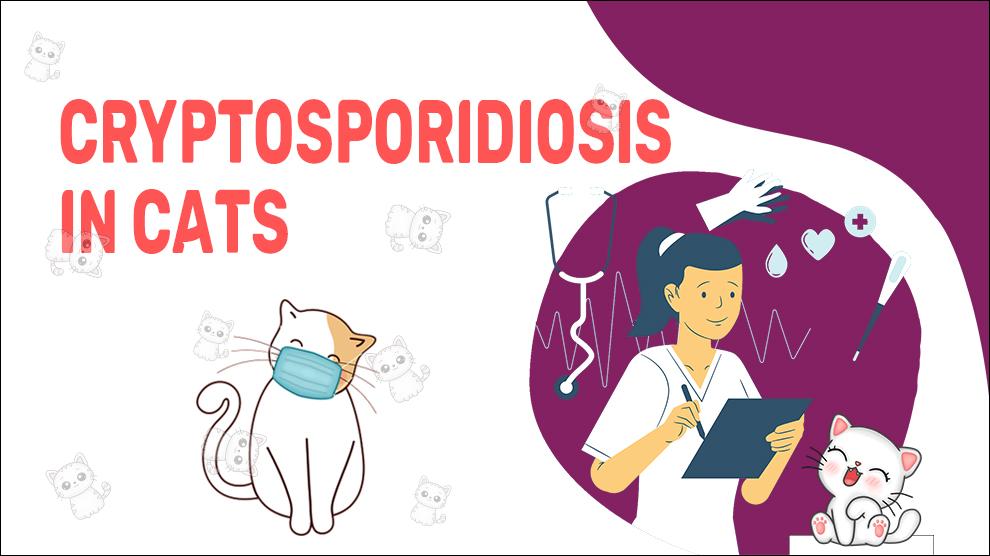What Is Cryptosporidiosis In Cats?
Cryptosporidiosis is a parasitic disease caused by the organism Cryptosporidium.
It is transmitted through contact with infected feces, contaminated food or water, or direct contact with infected animals.
Symptoms of cryptosporidiosis in cats include diarrhea, dehydration, vomiting, and weight loss.
Treatment involves supportive care and medications to manage the symptoms. Prevention methods include good hygiene practices and avoiding contact with infected animals.
Clinical Signs Of Cryptosporidiosis In Cats
The symptoms of Cryptosporidiosis can range from mild to severe and can include:
- Diarrhea (which may be watery or bloody)
- Dehydration
- Loss of appetite
- Weight loss
- Vomiting
- Abdominal pain
- Fever
- Lethargy
- Exercise Intolerance
- Nausea
- Depression
- Bloody Diarrhea
In healthy cats, the infection may resolve on its own without causing significant illness.
However, in cats with weakened immune systems (such as young kittens or cats with underlying health conditions), the infection can be more severe and may even be fatal.
Treatment Options For Cryptosporidiosis In Cats
There is no specific treatment for Cryptosporidiosis in cats. Treatment is generally supportive and aimed at managing the symptoms of the infection.
This may include:
- Fluid therapy to treat dehydration
- Anti-diarrheal medication to help control diarrhea
- Nutritional support to help the cat maintain their weight and energy levels
In severe cases, hospitalization may be required to provide more intensive care.
Home Remedies For Cryptosporidiosis In Cats
There are no proven home remedies for Cryptosporidiosis in cats. The best course of action is to take your cat to the vet for proper diagnosis and treatment.
How To Prevent Cryptosporidiosis In Cats?
The best way to prevent Cryptosporidiosis in cats is to practice good hygiene and sanitation.
This includes:
- Regularly cleaning and disinfecting litter boxes, food bowls, and water bowls
- Providing fresh, clean water at all times
- Keeping sick cats isolated from healthy cats
- Washing your hands thoroughly after handling cats or their feces
Affected Cat Breeds Of Cryptosporidiosis
All breeds of cats can be affected by Cryptosporidiosis, but it is most common in young cats, especially those that have not yet been fully weaned.
Causes For Cryptosporidiosis In Cats
Causes:
Cryptosporidiosis is caused by the microscopic organism Cryptosporidium.
Cats become infected by ingesting contaminated food or water or by coming into contact with infected feces or infected animals.
The parasite can survive outside of a host for long periods, making it easy to spread through the environment.
Cats that live in crowded or unsanitary conditions are at higher risk for infection.
When To See A Vet For Cryptosporidiosis In Cats?
If you suspect that your cat may have Cryptosporidiosis, it is important to see a veterinarian as soon as possible.
The veterinarian can perform diagnostic tests to confirm the presence of the parasite and provide appropriate treatment to help manage the symptoms of the infection.
Additionally, if your cat is showing any signs of dehydration (such as decreased skin elasticity, dry gums, or lethargy), it is important to seek veterinary care immediately to prevent further complications.
Food Suggestions For Cryptosporidiosis In Cats
Providing your cat with a balanced and nutritious diet can help boost its immune system and reduce its risk of infection. Talk to your vet about the best food options for your cat.
Conclusion
Cryptosporidiosis is a parasitic disease that can affect cats of all ages.
It is transmitted through contact with infected feces, contaminated food or water, or direct contact with infected animals. Symptoms may include diarrhea, vomiting, dehydration, and weight loss.
Treatment involves supportive care and medications to manage the symptoms, and prevention methods include good hygiene practices and avoiding contact with infected animals.
If you suspect your cat may have cryptosporidiosis, seek veterinary attention immediately to ensure prompt diagnosis and treatment.











